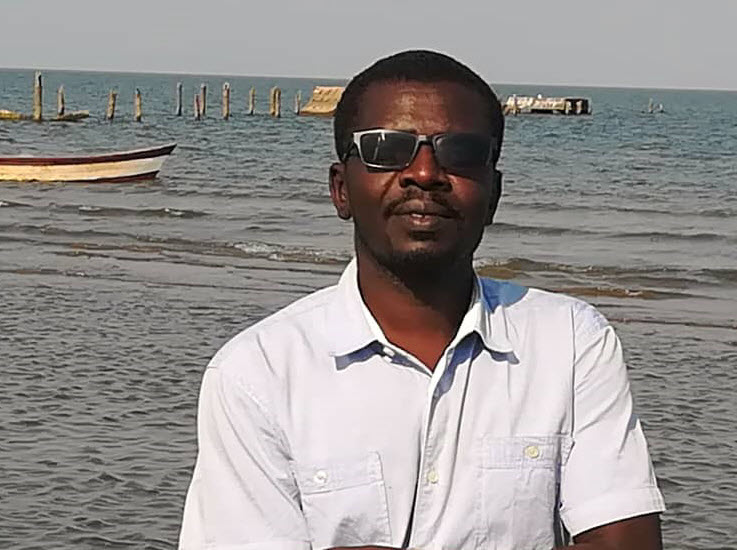 Malawi
Malawi
In 2018, Victor Kasuzweni joined the U.S. President’s Malaria Initiative (PMI) VectorLink Project in Malawi as Environmental Compliance Officer (ECO). With a Bachelor of Environmental Science from the University of Malawi and a Master of Environmental Engineering from Suzhou University of Science & Technology in China, Kasuzweni committed himself to protecting the environment long ago. Growing up in Chikwawa, one of Malawi’s low-lying southern districts, he developed a passion for nature at a young age. Recently, Kasuzweni talked about his experience with the project.
How did you get involved in the field of environmental compliance and safety?
I used to watch nature channels on TV from a young age. My motivation to work in the environment came about when I started to hear about pollution and environmental problems, and how we can make the world a safe place. This motivated me to pursue a career in environmental sciences. I have worked for a number of organizations in the area of climate change, emergency response, environmental management and protection over the years. In 2010, I joined the Government’s Environmental Affairs Department, and I was posted to work in Nkhotakota District as an Environmental Officer responsible for the coordination of all the natural resources and environmental management activities at the district level. While working in the district, I was introduced to indoor residual spraying (IRS) which aims to reduce the malaria disease burden. I actively participated in the planning and implementation of IRS activities. The field of environmental compliance and safety in IRS is exciting and fulfilling because it ensures the safety of residents and workers from insecticide exposure and the protection of the general environment from chemical spills while ensuring substantial reduction of malaria disease burden among the communities.
I feel motivated and work hard to deal with demanding and challenging issues more particularly when I see that the initiative I am involved in, such as IRS, is impacting positively on people’s lives. I also feel good to receive feedback from the residents that benefitted from IRS and various stakeholders for the work I am doing. This provides important information for reviewing and reflecting on approaches and strategies to continuously improve on the project’s implementation.
Can you talk about your work with the PMI VectorLink Project?
I joined PMI VectorLink in 2018 and my key responsibility is to ensure the project is environmentally compliant and implemented in accordance with the IRS Best Management Practices and local guidelines. This involves the development of a number of documents to guide the project’s work. I am involved in the planning and implementation of a number of activities that minimize or eliminate potential risks to human health and ecological systems. For instance, I work in close collaboration with the PMI VectorLink project team, government counterparts and local leadership to identify appropriate areas for establishing operational sites needed for the project. I am also involved in the planning and delivery of environmental trainings for various cadres working in IRS, including conducting IRS spray supervision during and after implementation to ensure adherence to safety standards.
What kind of initiatives has the project taken on to protect the environment?
The project conducted EC trainings for stakeholders on various aspects, such as use of personal protective equipment, handling of insecticide exposures, spills, and construction of wash areas and soak pits to deal with effluents to ensure safe disposal. The project has outlined emergency response procedures to deal with adverse effects in times of emergencies and also developed memorandums of understanding (MOUs) with local recycling companies working with paper and plastics. The MOUs lay out guidelines for the proper handling of particular IRS wastes to protect human health and the environment. For instance, the MOUs state that any recycling waste from IRS will not result in the manufacturing of food packaging products or any products that will come in contact with food.
What kind of impact have you seen from the project?
The project is having a big impact on people’s lives especially through the reduction of malaria disease burden. Malaria has been an issue and remains a leading cause of morbidity and mortality in the district. The feedback we are getting from the residents is quite encouraging. They welcome IRS and are seeing immediate changes to mosquito density in their homes. Furthermore, the project has significant implications on socio-economic development. For instance, the project has been a source of employment and brought about economic empowerment in the process. The project design also gave women a chance to actively engage in IRS implementation at various levels. The communities really appreciate this initiative because it empowers women to work on various leadership positions. IRS is one of the most effective malaria control strategies. We encourage people to accept IRS and use it alongside other strategies such as using mosquito nets and keeping surroundings clean and with no stagnant water. Because there hasn’t been IRS in the area for six years the district also benefitted from the project trainings and capacity building sessions. It is envisaged that the knowledge and skills gained will go a long way in making IRS implementation more effective.
What is your hope from the project?
I have a great hope that the project will have made substantial reduction of malaria burden by 2022. Through the effective planning and implementation of IRS among stakeholders in the district, there will be a number of best practices to inform learning and programming and share with other partners working on IRS in Malawi.


